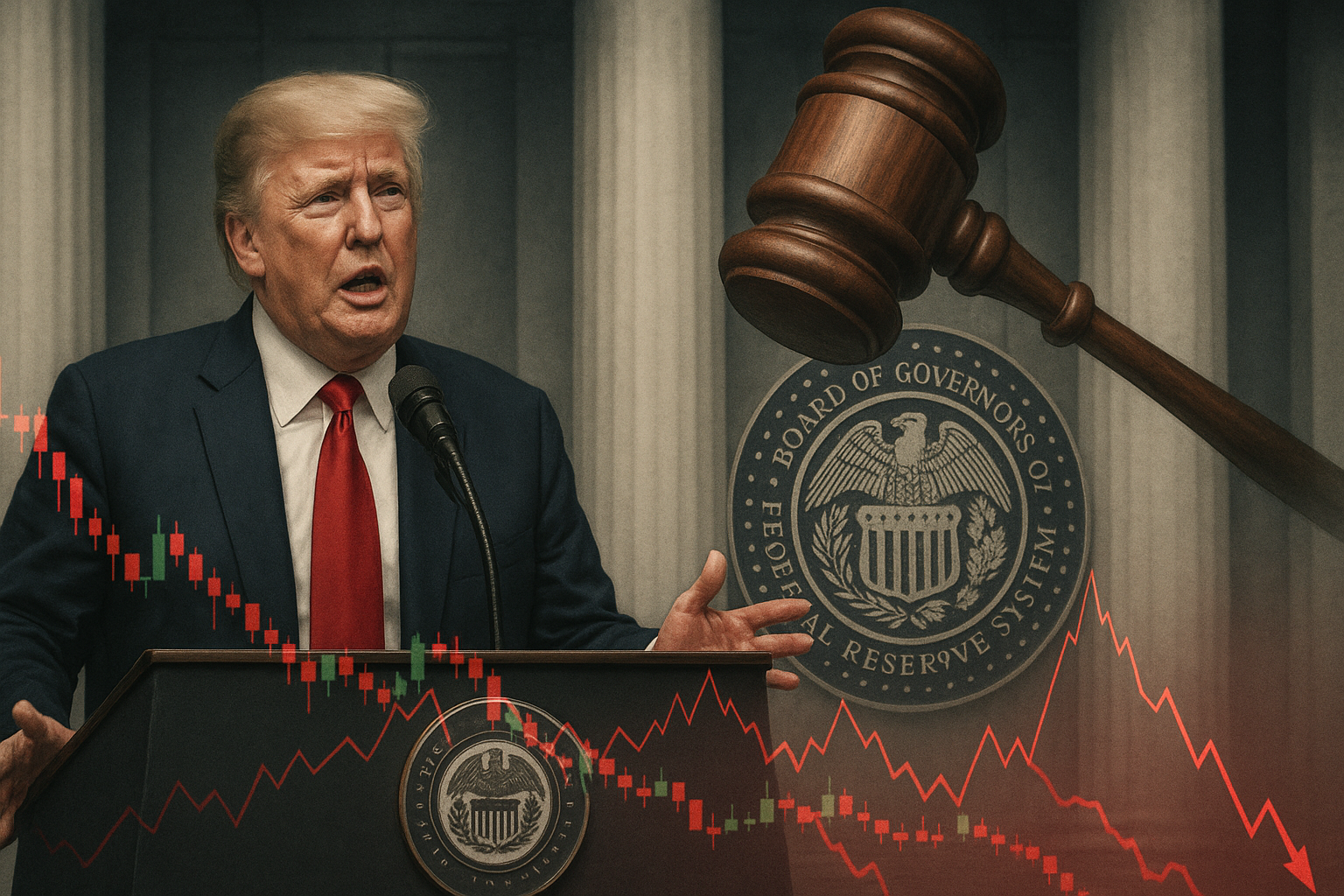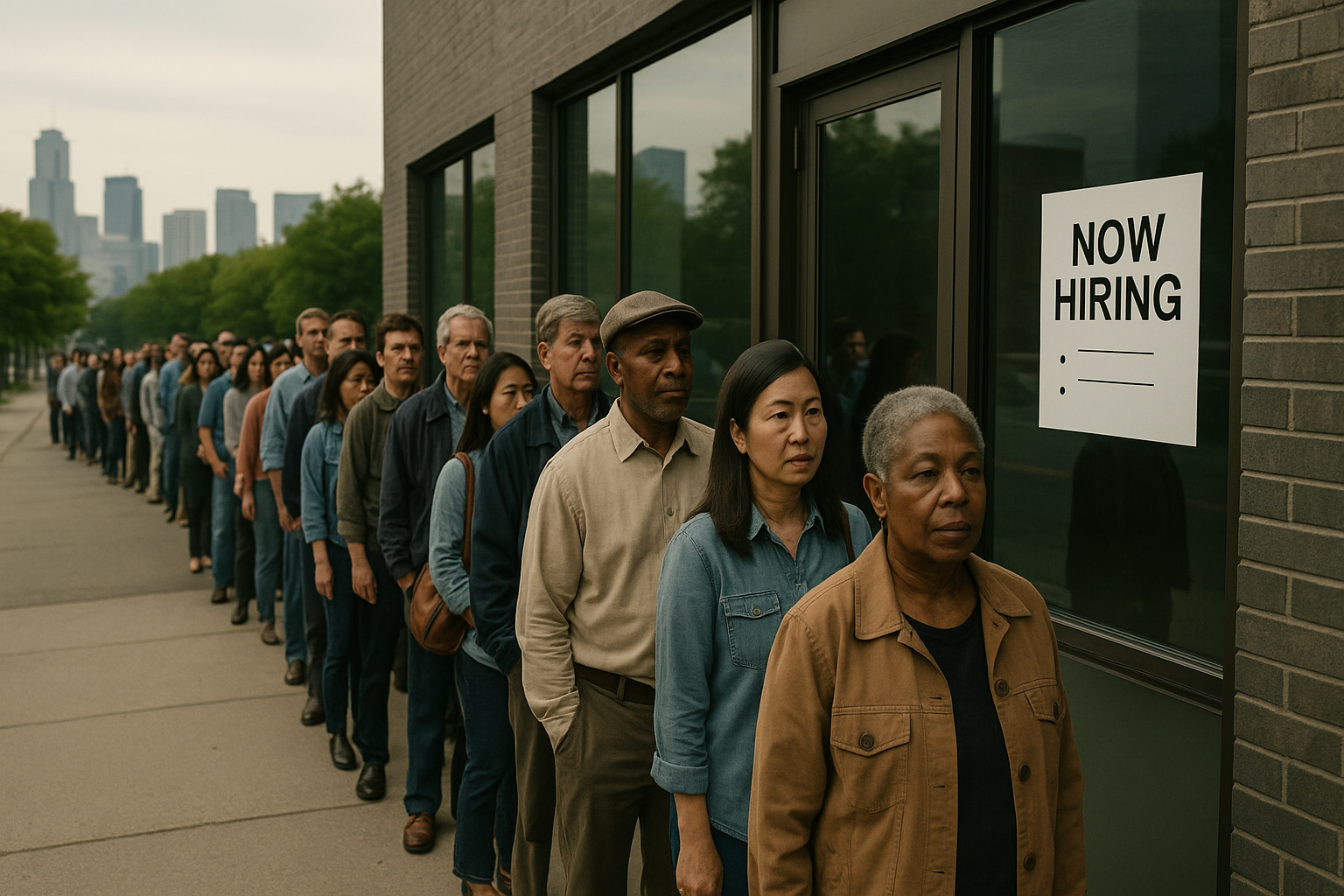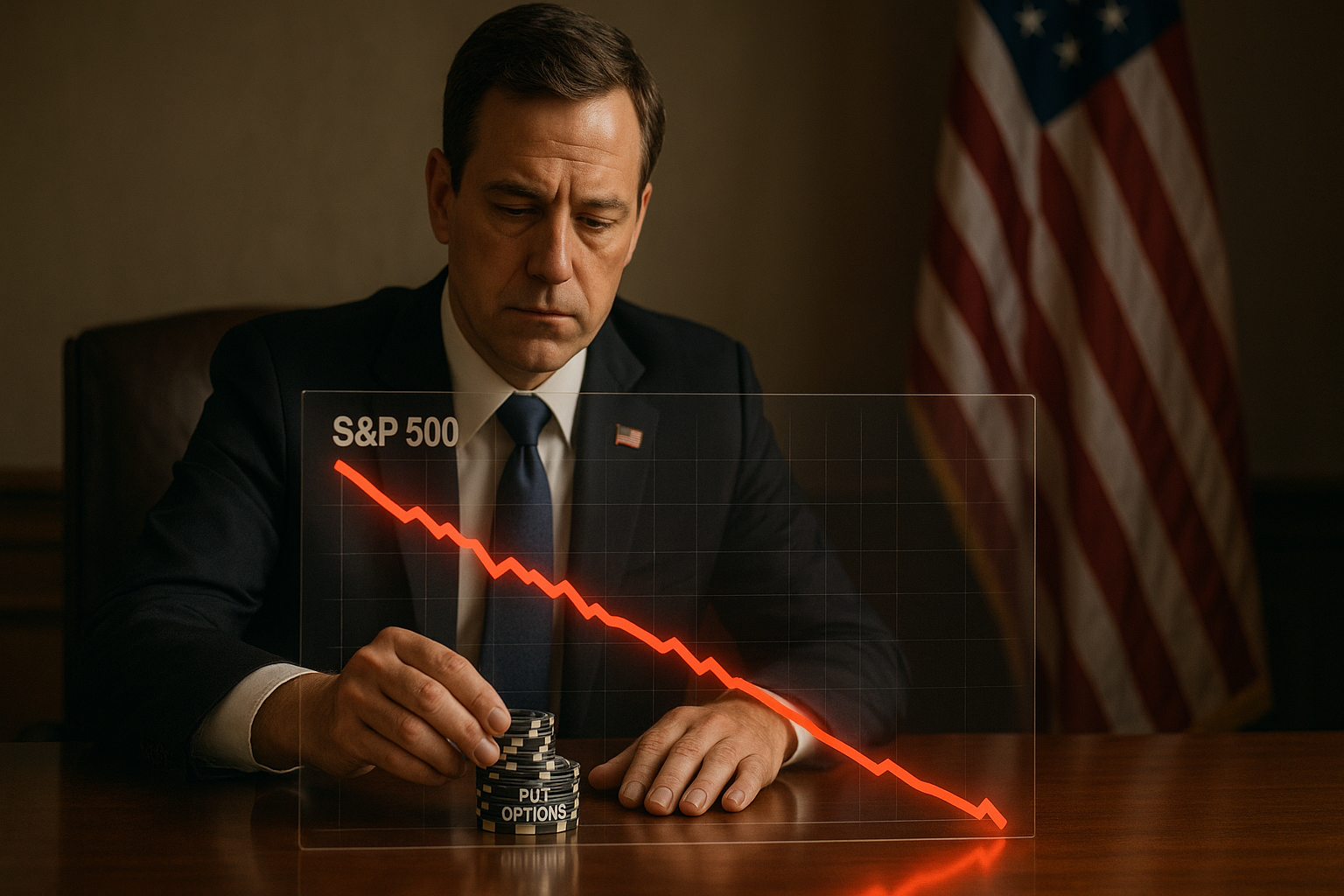President Trump took a sledgehammer to central banking norms Monday, announcing he's removing Federal Reserve Governor Lisa Cook from her position over alleged mortgage fraud. This move isn't just unprecedented—it's potentially system-breaking.
"Pursuant to my authority under Article II of the Constitution..." Trump declared on Truth Social, and right there, we're already in completely uncharted territory. The Fed was deliberately structured to operate independently from the White House. That's why governors serve those marathon 14-year terms and can only be shown the door "for cause"—meaning serious misconduct, not because a president doesn't like their policy leanings.
Markets, predictably, got the jitters. The Dow dropped 200 points before clawing back some losses, while Treasury yields jumped as traders tried to process what this means for the independence of America's monetary authority. Remember how markets used to twitch whenever a president merely tweeted criticism of the Fed? Well, this is that on steroids.
The alleged "cause" here? Cook supposedly claimed two different properties as primary residences at the same time—a mortgage technicality that, if true, would typically be handled through normal regulatory channels. Not by presidential decree.
But timing is everything in Washington. And this timing feels... significant.
Cook, who Biden appointed in 2022, has consistently voted for the Fed's recent interest rate cuts. You'd think Trump—a guy who historically loves easy money policies—would appreciate having dovish voices at the Fed. But this appears less about interest rates and more about who controls the levers of economic power.
I've covered monetary policy for years, and I've never seen anything remotely like this. The legal questions alone are fascinating. The Federal Reserve Act doesn't spell out exactly what constitutes "cause" for removal. No president has ever tried to test these boundaries before. While the Supreme Court has ruled on independent agency removals in cases like Seila Law v. CFPB, the Fed's unique structure makes this entirely new legal ground.
It's worth noting that Trump isn't targeting just any Fed governor—he's going after the first Black woman to serve on the Board. Cook, a distinguished economist specializing in economic history and international finance, brought unique perspectives on labor markets and inflation dynamics to the table. Her removal would alter the FOMC's composition at a particularly delicate economic moment.
Wall Street is already gaming out scenarios. (They're paid to worry, after all.) If Trump successfully removes Cook, does Powell's chairmanship become vulnerable too? Might other governors resign in protest? Does this foreshadow a broader campaign to politicize monetary policy? These uncertainties create exactly the kind of volatility that makes traders reach for the antacids.
Look, the precedent here is genuinely concerning for long-term market stability. Central bank independence isn't just some academic theory—it's a crucial institutional arrangement that gives markets confidence in monetary policy's long-term orientation. Countries where politicians directly control central banks tend to experience higher inflation, more volatile business cycles, and risk premiums on their government debt.
I keep thinking about a conversation I had with a former Fed official last year over coffee. "The genius of the Fed's design," he told me, leaning in like he was sharing a secret, "is that it's politically accountable but operationally independent." That careful balance now hangs by a thread.
The courts will ultimately referee this constitutional showdown, but markets won't patiently wait for legal resolution. Expect heightened volatility, particularly in rate-sensitive sectors, as investors digest this new dimension of political risk.
For traders, the immediate opportunities lie in options markets, where uncertainty premiums have already spiked. For long-term investors? This might be a good moment to review those inflation hedges. Not because inflation will necessarily rise, but because the institutional guardrails against politically-motivated monetary policy just got wobbly.
Whatever happens next, we've crossed a Rubicon in American central banking. Markets will adapt—they always do—but this particular evolution might be messier and more prolonged than most.




